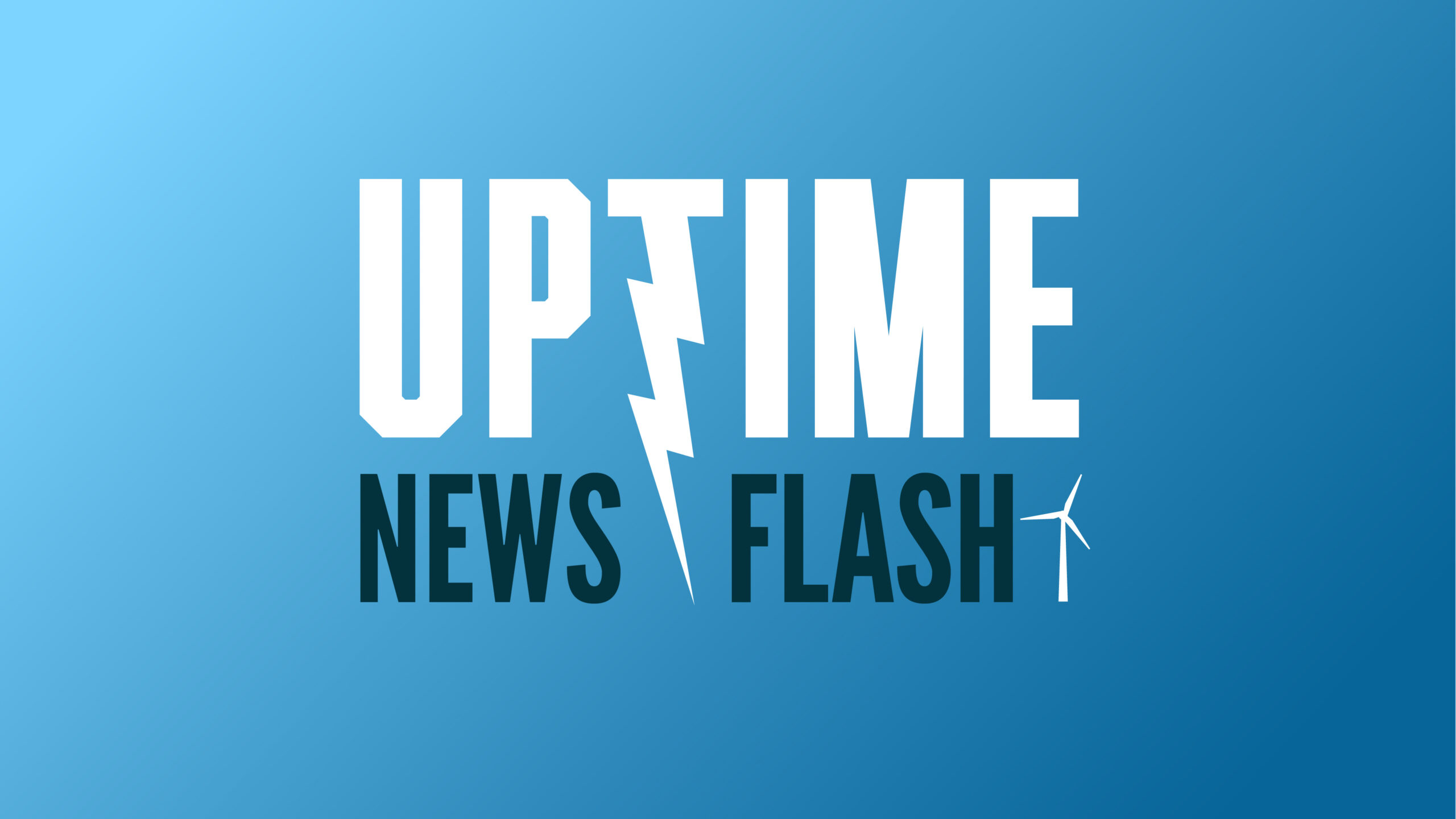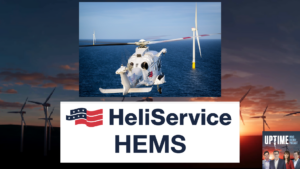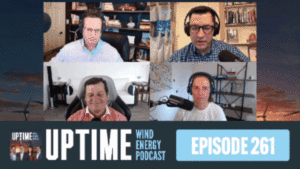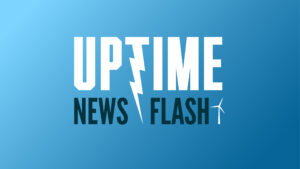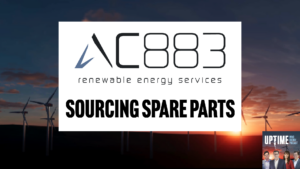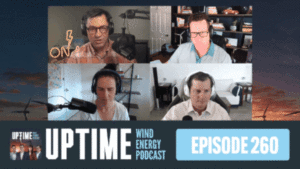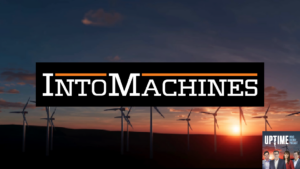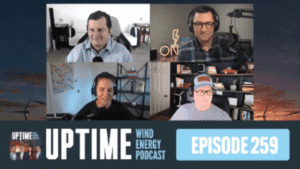Podcast: Play in new window | Download
This week on News Flash, Vattenfall invests 5 billion euros in Germany through 2028, Octopus Energy has surpassed two billion dollars in offshore wind investments, and the Asian Development Bank has secured groundbreaking sovereign guarantees for climate finance.
Sign up now for Uptime Tech News, our weekly email update on all things wind technology. This episode is sponsored by Weather Guard Lightning Tech. Learn more about Weather Guard’s StrikeTape Wind Turbine LPS retrofit. Follow the show on Facebook, YouTube, Twitter, Linkedin and visit Weather Guard on the web. And subscribe to Rosemary Barnes’ YouTube channel here. Have a question we can answer on the show? Email us!
Pardalote Consulting – https://www.pardaloteconsulting.com
Weather Guard Lightning Tech – www.weatherguardwind.com
Intelstor – https://www.intelstor.com
Wind Energy O&M Australia Conference – https://www.windaustralia.com
Welcome to Uptime News Flash. Industry news lightning fast. Your hosts, Allen Hall, Joel Saxum, and Phil Totaro discuss the latest deals, mergers, and alliances that will shape the future of wind power. News Flash is brought to you by IntelStor. For market intelligence that generates revenue, visit www. intelstor com.
Allen Hall: First up, Swedish utility Vattenfall is investing 5 billion euros in Germany through 2028, showing major commitment after selling their Berlin heating business. The company plans to build 500 megawatts of solar parks and 300 megawatts of large batteries annually. Two major offshore wind parks, the Nordelake 1 and 2, will add 1.
6 gigawatts of wind capacity. And they’re also investing 500 million euros in EV charging infrastructure. Wow, Phil, Vattenfall’s going a little crazy in Germany at the moment. This is a big investment.
Philip Totaro: Well, and it’s coming at a kind of an interesting time because, there’s been some, uh, hard to say whether it’s mild or moderate disarray in the German government at this point particularly in terms of the level of support that is, is gonna be provided long term to, to renewables.
But Vattenfall at least understands and appreciates the fact that, they’ve got a pipeline that, that’s pretty big besides the Nordlicht 1 and 2 projects. I think they’ve got an additional 1. 5 gigawatts of onshore wind and or solar and, and battery pipeline That they have in, in Germany.
So, they’re, they’re really swinging for the fences here and committing a rather large amount of capital at 5 billion Euro. So that’s it, it’s, again, it, it could be challenging short term timeframe, but long term they’re positioning themselves to be, as big of a player in, in Germany as they, they are in some of the other markets outside of, of Sweden.
Where they operate.
Joel Saxum: I think a big part of this five billion euros as well as that Nordlicht one and two for 1. 6 gigawatts of offshore wind capacity, because that’s just a lot of money to build that big of wind farms offshore. But when you look onshore in Germany, it’s a bit harder to develop wind.
You have permitting issues and those kind of things, but the tracks of land, it’s not like we’re here in the United States where we can put 100, 150 turbines out. The tracks of land are smaller, The setback limits are a lot bigger. They have different rules, right? It’s a little operations and maintenance is a bit more difficult, more expensive because you have, it’s like you have to test your lightning protection systems every two years.
You, you have to have multiple ice detection systems. If you’re within a certain setback of a road, there’s, there’s all kinds of little nuances in Germany there. But Vattenfall clearly sees the the advantages of doing some business there. And I know that Germany as a whole. Like you said, Phil, they’re in a little bit of a turmoil right now, but they need it.
So good on them.
Allen Hall: In our second story, Octopus Energy has surpassed two billion dollars in offshore wind investments in just two years. They now hold stakes in six offshore wind farms across three European countries. The portfolio includes Hornsea One, one of the world’s largest wind farms, plus projects in the Netherlands and Germany.
And the company has launched an innovative fan club tariff, giving locals discounted rates when it’s windy outside. So Octopus is a really unique company, Phil. They’re doing innovative things, but they’re also investing heavily in offshore wind.
Philip Totaro: Yeah, and, and this is actually kind of fantastic because they’re doing this, I mean, as a, an investment group parent company to this, octopus energy utility that they, they run.
But they’re, I’ll refrain from using the tentacles joke because I think I’ve already talked about how their tentacles are everywhere. So, they, the, The reality, though, is that with this business model where they’re inviting in kind of smaller investors or offering this, quote unquote fan club tariff they’re, they’re working on a lot of unique ways in which they can get community engagement where the community can clearly see the benefit that they get out of the investments that that are going into this, or if the tariffs are fixed or are being raised, at least the community sees what they’re getting out of it.
And I think that’s become increasingly important throughout Europe, the UK especially, but the rest of Europe as well, where octopus energy is, is predominantly investing in, in offshore wind. So, again, good on them for, for what they’re doing. And we, we hope to be able to see more of it.
Joel Saxum: I’d like to talk about something that is completely related to octopus energy and what they’re doing just for a second, but it’s not wind related. What octopus energy has Has done in the last few years is since jumping onto the market. This company is not old. They’re fairly new, only a couple of years old and the amount of capital that they’ve attracted and what they’ve done is a brand to bring people along for the journey of renewable energies.
For, like the fan club and kind of all, if you go on their websites, you see, it’s just a bit more friendly of an energy company. It seems like it’s easier to get on board with. I think they’ve done a fantastic job of branding themselves and bringing that forth for renewable energy generation.
And I’d like to see more companies do this because they don’t seem like this staunch kind of hard up energy company. It seems like something that you’re just dealing with your friends and you’re, you’re getting on board with the energy transition. So I really like what they’ve done.
Allen Hall: And we need more of that in the, in the States at the moment.
And over in Asia, the Asian Development Bank has secured groundbreaking sovereign guarantees for climate finance. The U. S. will guarantee 1 billion in Japan, 600 million of existing loans. That’s great. Creative structure will increase ADB’s climate lending to 7. 2 billion. Their first project uses 90 million to create sustainable aviation fuel in Pakistan, converting cooking oil to jet fuel.
Wow. The Asian Development Bank is pretty busy, Phil. This is one of the things that sort of Europe is doing, but you’re starting to see it in other places.
Philip Totaro: Yeah. And for those that aren’t familiar, the Asian Development Bank has made rather substantial investments already in wind, solar, and battery storage projects in Southeast Asia basically covering almost the entire Asia Pacific region outside of China.
So they’re developing things in the Philippines, in Thailand all over the place, even, even, frankly, investing a little bit in some of the projects in Australia as well. So they’re, they’re making important strides here with the investments they’ve already made and the fact that they’ve been able to raise this much additional capital and get these kind of sovereign wealth commitments.
To, to offer an additional 7. 2 billion. That’s, that’s extremely important and impressive.
Joel Saxum: I’m super happy to see these projects moving forward. Sustainable aviation fuel. We know the aviation industry uses a lot of, hydrocarbons in what they do. And these kind of things with this capital being deployed.
However, I’m not a huge fan of the U. S. underwriting a billion dollars of it when we could be doing these projects on our own shore.



